|
It's taken a while but I finally pulled together the third issue of The Jumper. It's packed full of articles that should appeal to jumpers coaches and fans of these events alike. We've articles from top coaches such as Nick Newman, who's based in the US at USC as jumps and coach - Nick talks about his approach to jumps coaching. You can get his book from Amazon.
Then we have an article from Nelio Moura who has coached two Olympic long jump champions ... yes two. Nelio shares with us his tips on how to coach the long jump take-off. Top sprint coach Jonas Dodoo shares with us his tactics and technical tips for developing speed. Speed is something that all long jumpers and triple jumpers crave so this is a must read. Jonas's' article is part of a larger speed special, where we delve into numerous aspects of speed development, such as acceleration. The issue includes it's usual mix and there's our social media watch, where we single out great pages and channels and podcasts for you to scroll to. This issue was supported by Neuff - athletic equipment suppliers, so do check them out. There are some great offers from them (and other brands in the magazine). From Neuff you can get a Power Pack which includes sled, stretch bands and med balls and was part selected by your truly. It's a great combination of items that are actually really useful and applicable to sprinters and jumpers. To get hold of the issue for FREE, all you need to do is click on the image. It will download from the web and from there - should you want - you can download it as a PDF. Links to the various media will work in both formats
0 Comments
I hope you are coping with lock-down and that in terms of your track (and other sports) participation you are at least maintaining your fitness and if you are a coach coaching virtually, if you're unable to coach face-to-face. I've been beavering away and have just published the summer issue of THE JUMPER. it's packed full of multi-media that will hopefully keep you interested!
CONTENTS In this issue we have articles on how to return to speed after lock-down written by top UK and England Athletics physio Stuart Butler. We also have an article on how to review and monitor your athletes' training by elite Brazilian coach Nelio Moura and an article on jumper's nutrition. I write on the importance of speed for the long and triple jump and unearth some research which relates 100m (and other variables) to potential distance a jumper could achieve (for the long jump). There are also more coach and athlete led features - for example, we talk to Gabe who's a coach of all track & field events based in Singapore. There's also a feature on how Electro Muscular Stimulation can boost athletic performance, plus product reviews. We talk to Markus Lundborg, the triple jumper and driving force behind the Triple Jumpers Podcast and social media.(70.6k followers on instagram!). The Jumper is also packed full of links to my YouTube videos where relevant and external sources. So, all in all there's much to read, watch and listen to. I hope the content assists, educates and entertains you, whether you be a fellow track coach or athlete or involved in another sport.
Click to set custom HTML
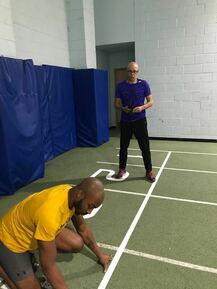
This Thursday sees an article in Athletics Weekly penned by yours truly. I follow-up on a previous article which was written by Dr Josephine Perry on the same subject (Choosing a coach). Josephine talks about coaching and ego and makes suggestions as to how athletes should find a coach that has an ego that's kept in check! In my follow-up I agree, but also note that coaches (like athletes) do need an ego. And I also provide a number of reasons as to what athletes should look for in a coach. My comments are written, in a way, from the coach's perspective too. They take into account what I, as a coach, may also expect. Here's a snippet and do check out the magazine.
1. Look for coaches who have had success with numerous athletes over a period of time It’s easy for a coach to become ‘well-known’ if they coach a top athlete – but talent may be just as responsible for that athlete’s success as the coach’s ability. A coach who year in year out delivers will have the greater consistency and accrued learning 2. Following on, don’t think that not coaching an elite athlete makes a coach of lesser importance. Many argue that the best coaches should in fact be working with the youngest of athletes, teaching them the best habits and optimising their technical ability. So, look for a coach who has improved young athletes consistently. 3. Try to find a coach who has a consistency – a methodology. And ask them what that is. Obviously, more mature athletes will be in a better position to reflect on and question that methodology. On that note, be prepared to suggest to the coach ideas that you think will work for you. Build up trust overtime. 4. Beware of a 'one-size fits all' coaching philosophy. It can be difficult for a coach to not give all athletes the same session (trust me I know), but not everyone will respond the same. 5. Choose a coach that is confident and has a personality (it does not need to be loud or overly charismatic) but one that you think you can get along with. However, make sure that your coach will listen as well as make decisions. There are more pointers in the article.... Youtube Update I've now started to post some exclusive content in the community section. This is for subscribers, so far I've posted an overview of an actual workout we did (at the time of writing, two Saturdays back) and also an 'exercise of the session'. These are just short videos that contain the the type of content just mentioned and similar. So, do sign-up to the channel to get these and other exclusive content. Here's an example:
For a recent assignment for UK athletics magazine Athletics Weekly I was sent to find out how British Rowing uses data to develop its athletes and identify talent pathways. The sport works hand in hand with SAS (the sport's official analytics partner). To promote this partnership and showcase what British Rowing is doing (and do note it is one of Britain's most successful sports) a special talent ID was put on and Morgan Lake (second on the all-time high jump rankings and none other than Olympic long jump champ Greg Rutherford went along to put themselves to the test.
In the AW article I made a comment about learning from rowing: Definitely yes, however, our sport is a much larger and diverse one, but I’ve often thought that searching even among our own ranks for a male and female triple jumper (one of the UK’s weakest events, for example, at present) could be an interesting project. There are so many talented sprinters who won’t unfortunately make it to the very top but who might, for example, do so in the triple (it’s not as hard as rowing!). Some basic speed, strength and power tests would be easy to pull together to determine potentiality. World Class Start Programme https://www.britishrowing.org/gb-rowing-team/rowing-for-gb/world-class-start/ You can see how Lake and Rutherford managed in this short video from the day and in Athletics Weekly (article published 6th Dec 18) https://www.athleticsweekly.com
Click to set custom HTML
Recently has been a very busy period for me. Like many of us, time seems to be running at warp speed and yesterday seems to have not finished before today starts.
After returning from England coaching duties in Vienna, where I was jumps team coach (a great honour), I got a phone call from Wendy Sly from the Great Run company about Athletics Weekly. Would I be interested in doing some writing for the magazine on a more permanent basis (I’d regularly contributed over many years)? This was another great opportunity and, something I’d not have foreseen, thirty-five odd years back, when my name first appeared in the UK men’s top 50 lists for the long jump. I was 17 and had managed a jump of 7.04m in that year’s English Schools. I recalled how I flicked through the then small A5 copies of AW at my school – one of the teachers must have been a runner. I recall a copy with, I think, the East German sprinter Marlies Gohr on the cover. AW has always been around for me as a coach and an athlete and occasional master athlete and now I have the opportunity to be a regular contributor. We (us athletes) all wanted to see our name in print in the mag and wow, if we got our picture, now that would be an achievement. I’ll be writing on the performance aspects of the sport, through my own devices/assignments and contacts and via suck knowledgably contributors as Dave Lowes, Tom McNab and others. I’ll be calling up some of my coach friends to see if you have some nuggets of information! Also, if any of you reading this have ideas for content let me know. The first few weeks have been hectic, getting copy together and learning what I have to do. I’ve still got some other commissions for other magazines and websites to complete too and of course there’s my coaching. But it’s a fun (most of the time) and somewhat obviously writing for AW and my coaching fit very well together. Over the past few decades of health, fitness and sports writing/editing I’ve had the privilege and the opportunity to talk to so many sportsmen and women and coaches, fitness instructors and strength & conditioning experts and even fly over the rain forests of Brazil whilst covering an ultra race (that’s a story for another day). Magazines are still an entertaining and invaluable means to kick-back, switch-off and relax, but they do need to evolve and utilise social media and in particular video to engage, further their reach and make some money! My YouTube channel was in a way a reflection of these changing media times. I should have been more proactive many years back… but better late than never. So for AW you’ll be reading more from me and maybe hearing and even seeing a bit of me in some of the videos I hope to make to go with some of the articles. Oh, and speaking of busy weeks, here's a review of three of the group's performances at the British Trials and the British Universities and Colleges Championships last weekend.
Click to set custom HTML
Something a little different here's a short video on my trip to the opening of Asics' new flagship store in London. I found about the brand's philosophy and their product ranges and what their 'move it' campaign is all about.
Yesterday was spent in the Surrey Hills with ultra runner Susie Chan. Susie is a bit of a celeb on the running circuit and has run the Marathon des Sables three times and numerous other marathons and ultras. I was interviewing her for a piece in Outdoor Fitness & Adventure and will also be making a video.
Susie only took up running six years ago and admits to doing her first trail race, slightly hungover! Since then the Surrey woman has gone onto complete hundreds or races and log up thousands of miles. She is a real example of "The Girl Can"! .... I realised that it was a trail marathon. I didn't even know what that meant... (as the miles and hangover) slowly melted away by mile 9 I realised that I could finish..." There have been races that I have struggled with for various reasons. The first was the Jungle Ultra... you start at 12,000 feet in the Andes and run down to the Amazon basin... I wondered if I was good enough for the race..." Look out for the full interview in the June/July issue of Outdoor Fitness & Adventure
|
Categories
All
Click to set custom HTML
|
Proudly powered by Weebly
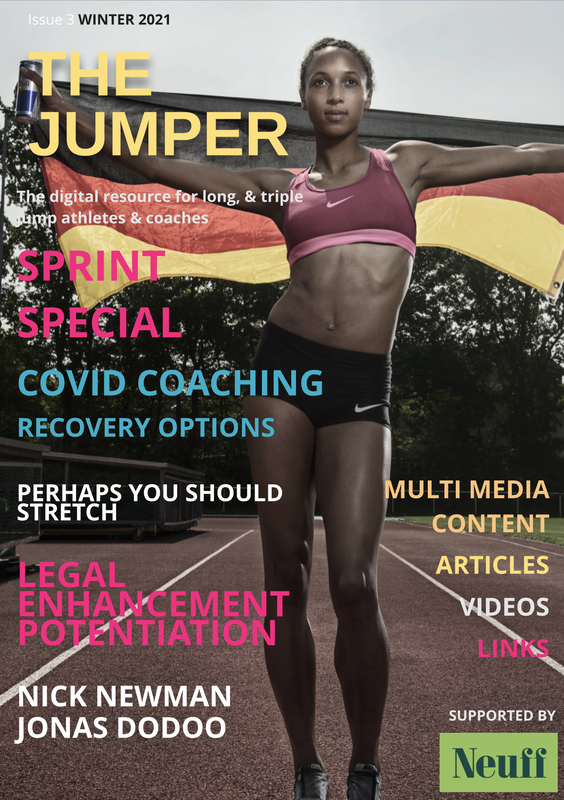
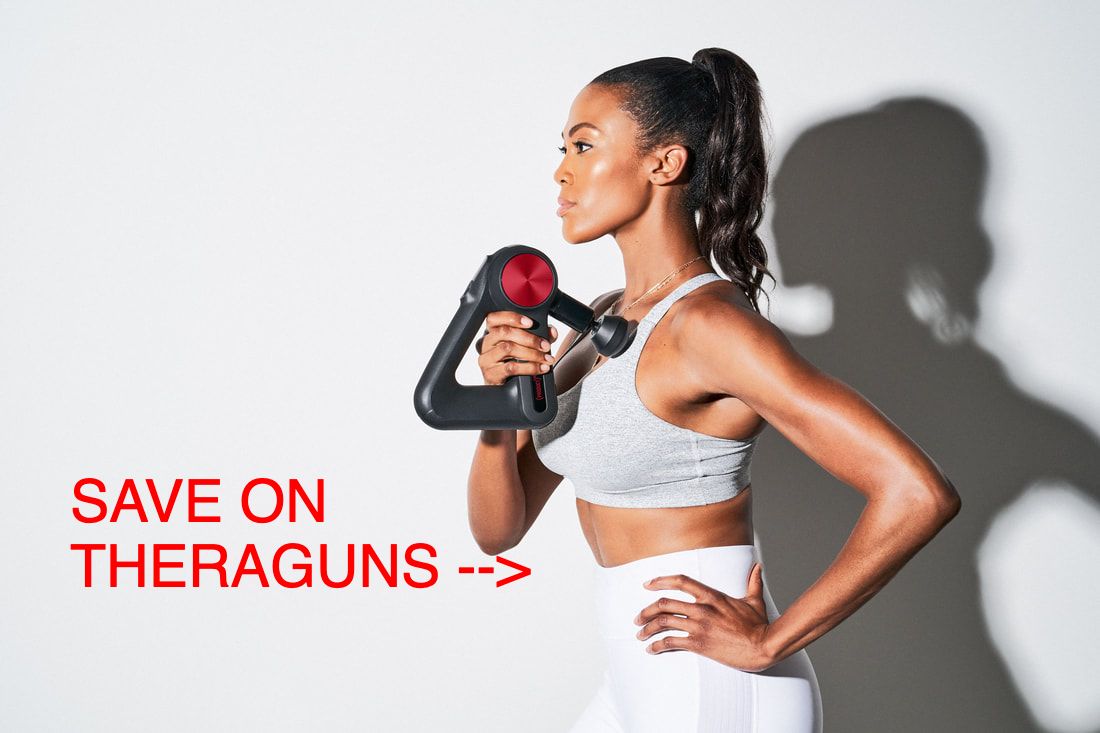
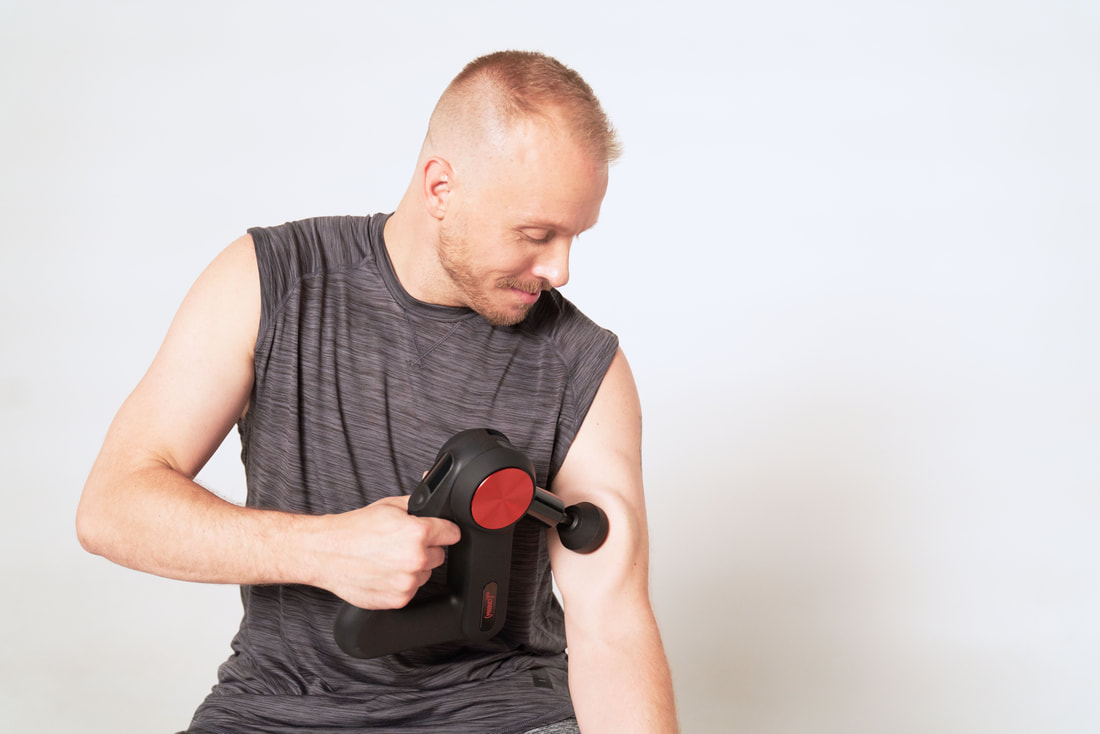
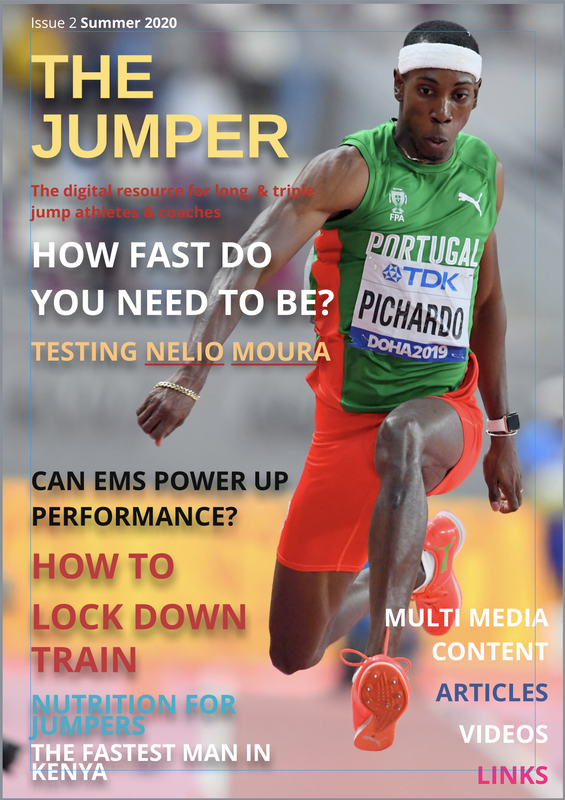

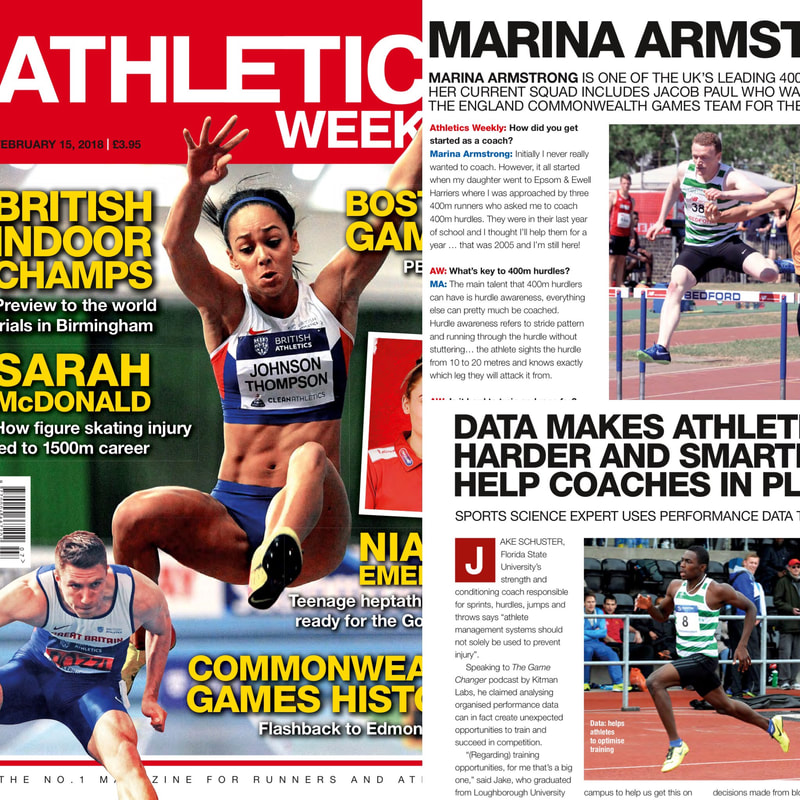
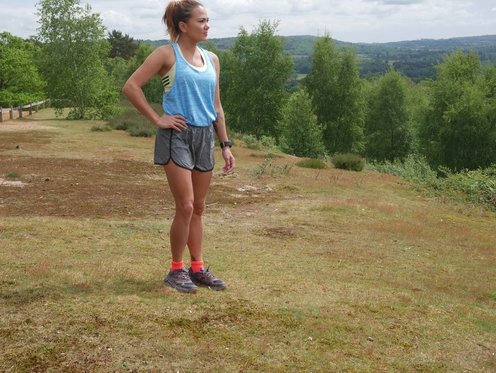
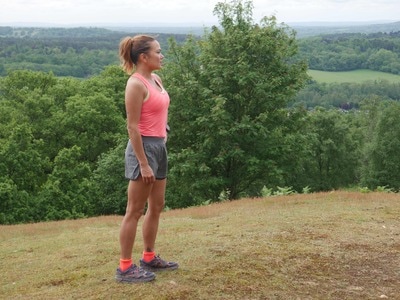
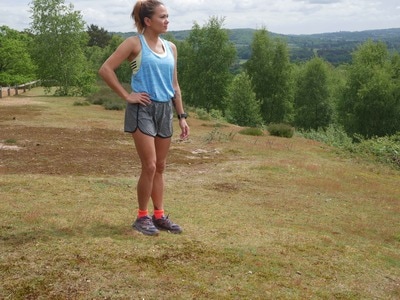
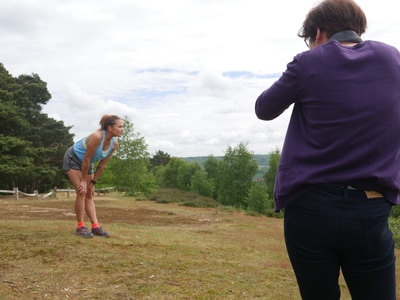
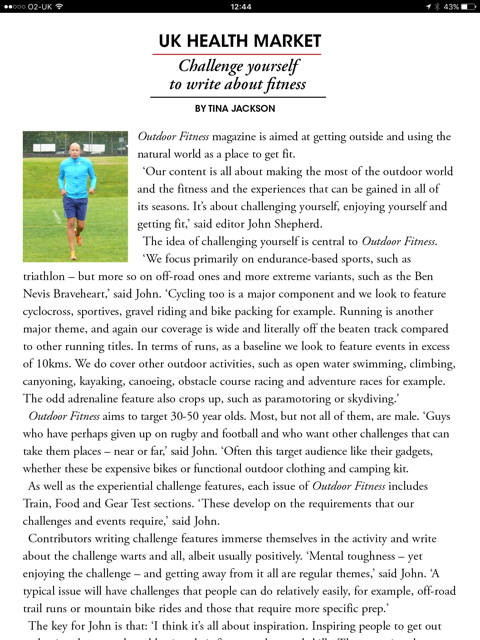
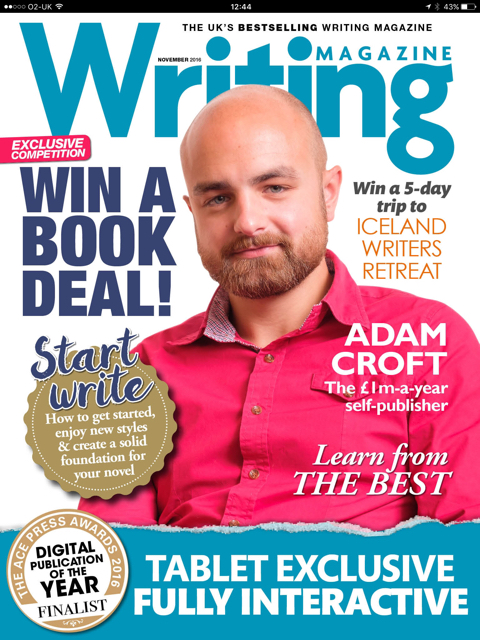

 RSS Feed
RSS Feed
